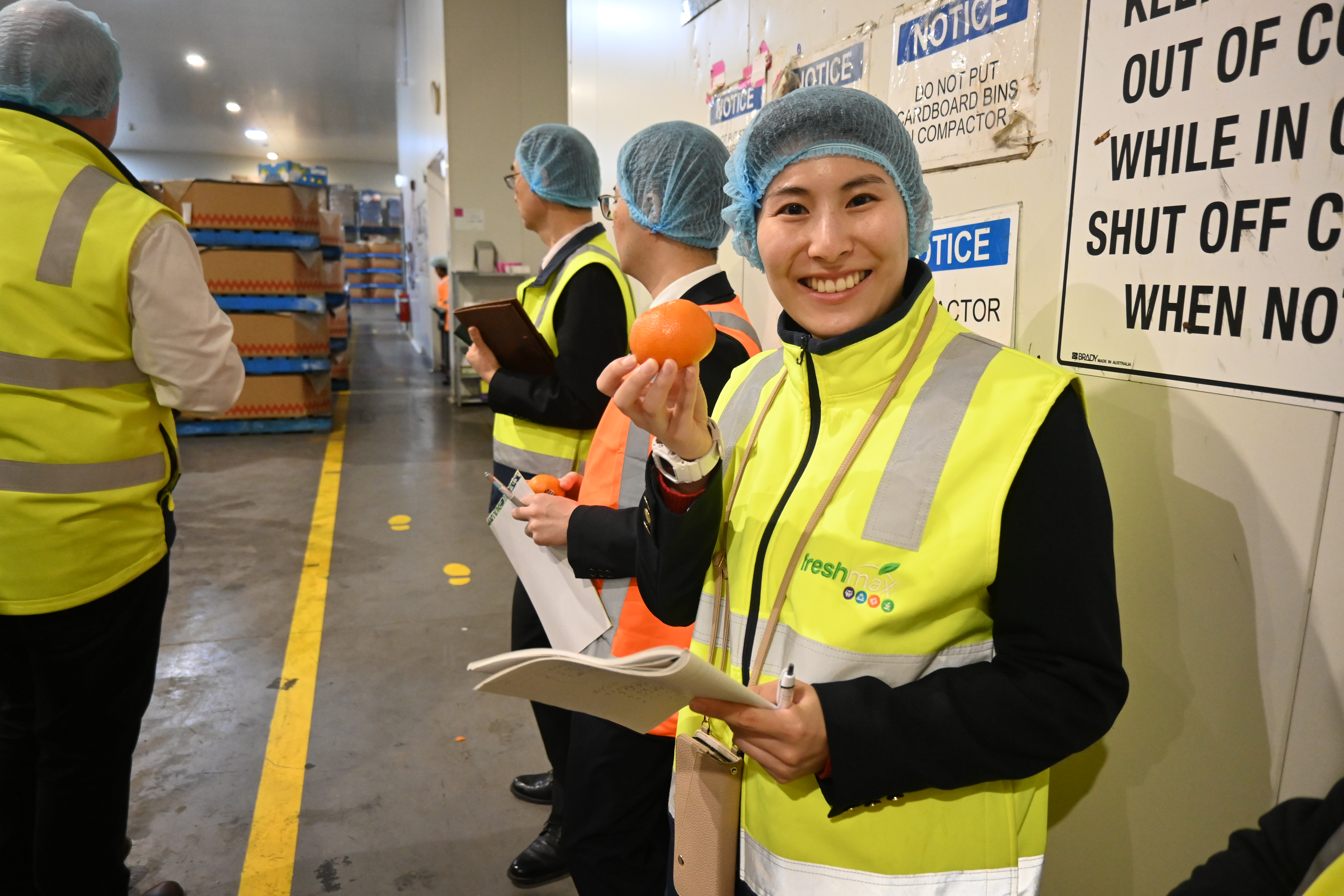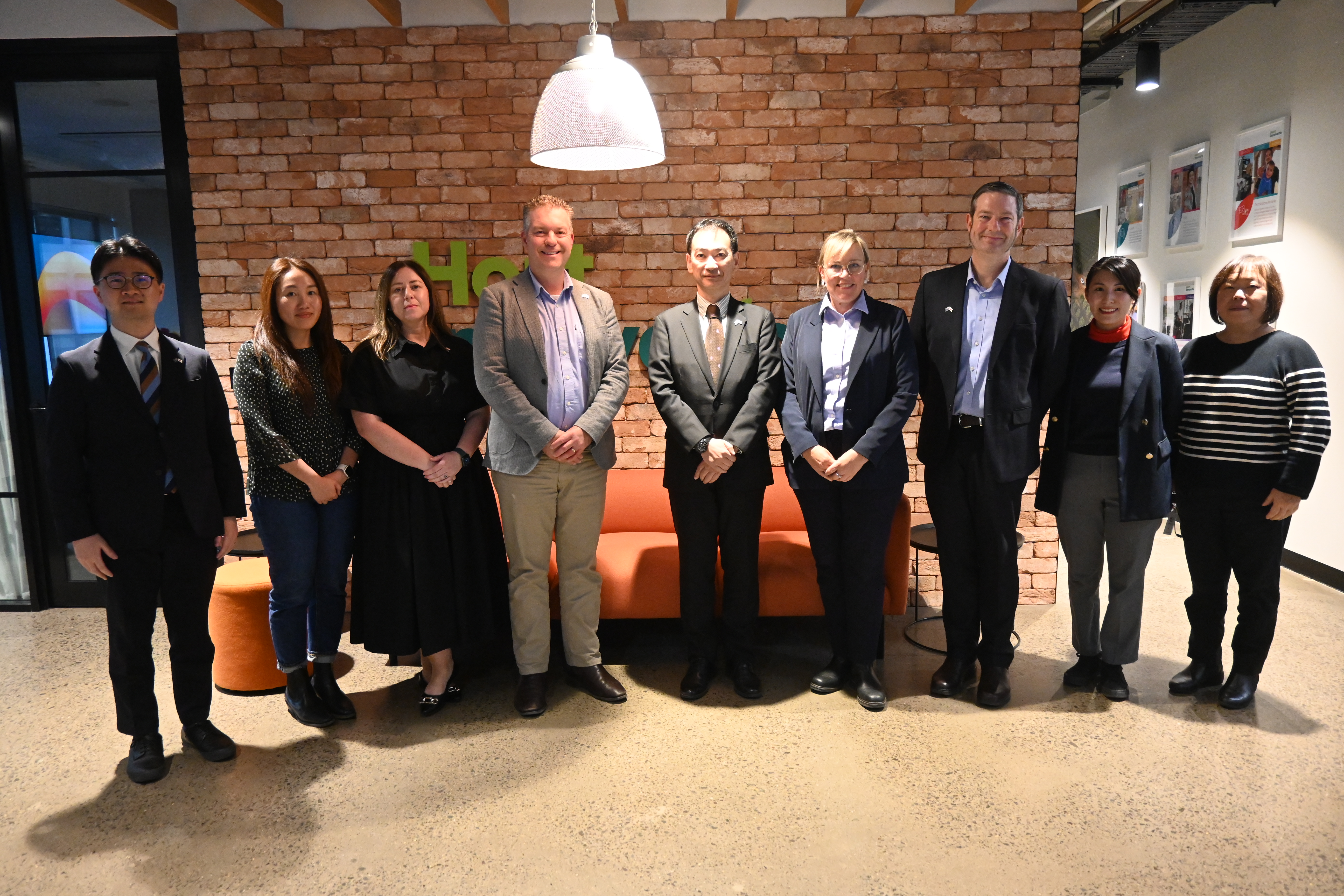In June, three delegates from Japan’s Ministry of Agriculture Forestry and Fisheries (MAFF) visited Australia to understand counter-seasonal horticulture export opportunities and interview Australian growers and horticulture experts to assess feasibility of future export opportunities and collaboration between our two countries.
Facilitated by Hort Innovation and the Department of Agriculture Fisheries and Forestry (DAFF), the MAFF tour ran from June 15-21 and welcomed MAFF’s deputy director-general, export and international affairs bureau, deputy director, Katsuhiro Saka, intellectual property division, export and international affairs bureau, Ryota Kaji, and an official from the bilateral affairs division, export and international affairs bureau, Yasuho Iwabuchi.
This visit follows focused engagement efforts by DAFF and the horticulture industry to build relationships with Japan.
Most recently, hosting a successful Australia-Japan showcase dinner, which took place in Tokyo and focused on opening further opportunities for fruit, vegetable, and nut growers.
Hort Innovation chief executive Brett Fifield shares the importance of the relationship with Japan and why visits like this are vital.
“Japan is Australia’s third largest trading partner in horticulture, with exports valued at $175.6 million in 2025,” he says.
“Our partnership in horticulture has been highly complementary and counter-seasonal, allowing us to support each other's markets effectively, particularly in the months when Japan’s significant domestic horticulture production slows due to offseason.
“On this recent visit, we were proud to showcase Australian horticulture, supported by stringent quality assurance programs, first-rate food safety systems, eye-catching branding strategies, and a strong reputation for safe, clean, and innovative agricultural products to our Japanese visitors.
“And off the back of the visit, one thing is clear: we are deeply invested in each other's success and building our relationship further, and we look forward to seeing our growers benefit from this opportunity.”

The leading exports to Japan are oranges, table grapes and macadamias, which account for 42 per cent, 13 per cent, and 13 per cent of our exports, respectively.
Japan also imports a wide range of our fresh produce, including melons, avocados, vegetables, almonds, cherries, and other citrus products such as mandarins, lemons, limes, and grapefruit.
The visit also follows the announcement of a statement of intent on agri-food value chains between MAFF and DAFF. This statement provides a formal framework for Japan and Australia to collaborate on agriculture initiatives.
First assistant secretary for trade and international at DAFF, Al Campbell, says Japan is an important trading partner for Australia, and this visit has made the collaboration between the respective horticulture industries even stronger.
“By continuing to engage with our Japanese counterparts, we can support expanded trade opportunities and provide the best outcomes for both Australian exporters and Japanese consumers,” Al says.
This project continues to connect Australian and Japanese horticulture industry representatives to build relationships, expand networks, exchange knowledge, and explore commercial and research opportunities.




